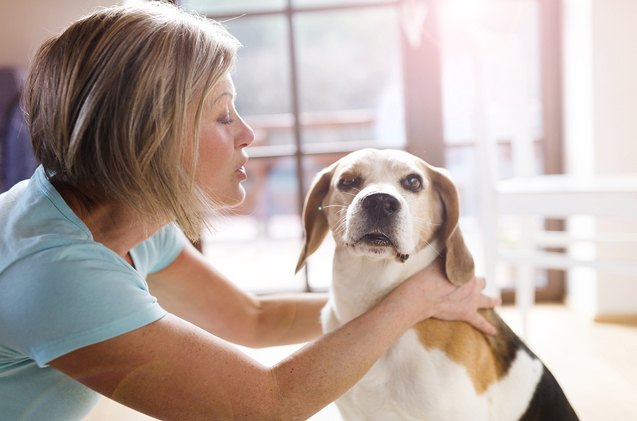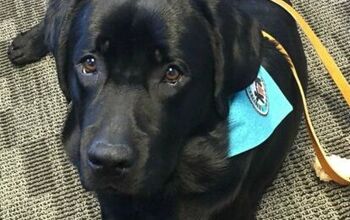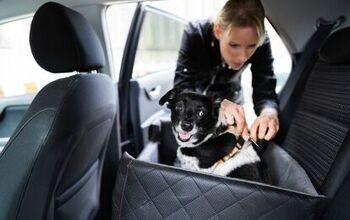New Florida Legislation Allows Therapy Dogs in Court
Any pet owner will know that life is better with an animal by your side. Feeling nervous about your exam results? Stroke the cat and you’ll feel much better. Wedding Day jitters? Just hug the dog and it’ll all feel like a breeze. If you’ve ever been to court, you’ll know that the whole process can be pretty daunting. For younger people and children it can be totally overwhelming. But now the experience could be a lot less stressful due to a new law being passed in Florida allowing therapy dogs into court rooms.
The system is already helping people
The first court to embrace the Paws in Court program was Miami-Dade Children’s Court. One girl who has found reassurance through the program is Jenette Alen. A 19 year old who had to go before a judge to assess whether she had worked sufficiently hard at her drug rehabilitation program to be allowed to graduate from drug court.
Related: Deaf Dog Stands By Abused Children in Court
Jenette took a friend with her for support, but her nerves were running high. However, on arrival, she was introduced to Ginger. Ginger is a gorgeous Labrador cross. She’s a therapy dog and she’s very friendly! She wears a vest that reads “Please pet me”. Well how could anyone resist that? Jenette and her friend certainly couldn’t!
Ginger was a great distraction from the nerves. It was much better for the girls to spend their time rubbing Ginger’s tubby than dwelling on the upcoming court hearing. Jenette felt less scared about the whole process simply because Ginger was there. Such a simple thing, but it made all the world to Jenette.
The new law
Previously, therapy dogs were only allowed into certain sexual offense trials in a selection of courts across Florida. But since July 1, they are allowed into any court in the state for any proceedings that are to do with child neglect, abandonment or abuse.
Related: Boston Law Firm Only Represents Canine Clients
The dogs are highly trained, not for a particular job, but just to be well-behaved, friendly and affectionate. This of course comes naturally to most dogs, they love to be spoilt and cuddled!
Some judges had their misgivings about the the program. Well, you can understand that, a court isn’t the place for barking, but they soon changed their tune when they discovered how well behaved these dogs are actually are.
The training process
Training dogs to attend court as therapy dogs is a long process. They learn to obey commands and to be obedient and friendly. Before they are given their certificate that allows them into courtrooms, they will have visited a minimum of 50 places as a therapy dog, places where they will be well received such as nursing homes, schools and hospitals. Of course it’s not just the dogs that need training. Dedicated volunteers also undergo a vigorous training regime in order to become therapy dog handlers.
The dogs are even helping the cases
The dogs give reassurance to children in court and we’re seeing kids being able to open up and speak out because they have the comfort of a dog by their side. Children are seen to pay more and more attention to the dogs, the more difficult the court experience gets for them. In highly stressful scenarios, such as children having to give evidence in an abuse case, the dogs can help them to find their voice and to speak up against their abuser. The therapy dogs help them to fight their fear.
This may well be the way forward
In Florida, the program is already looking like a huge success. Hopefully when word gets around about the amazing job these therapy dogs are doing, other states will follow suit. Surely every building is better with a dog in it and courts should be no exception! Oh and for anyone wondering how Jenette Alen got on, she was allowed to graduate from her drug program. The perfect ending to the story.
[Source: Miami Herald]
More by Emily Hutchinson























